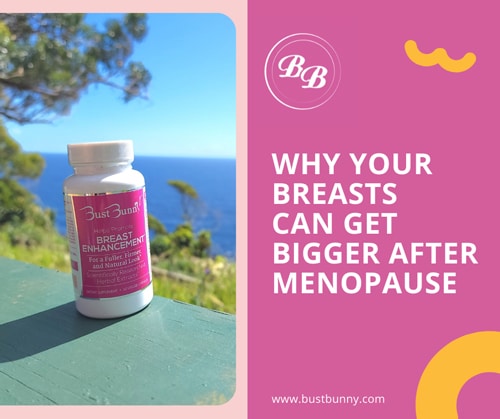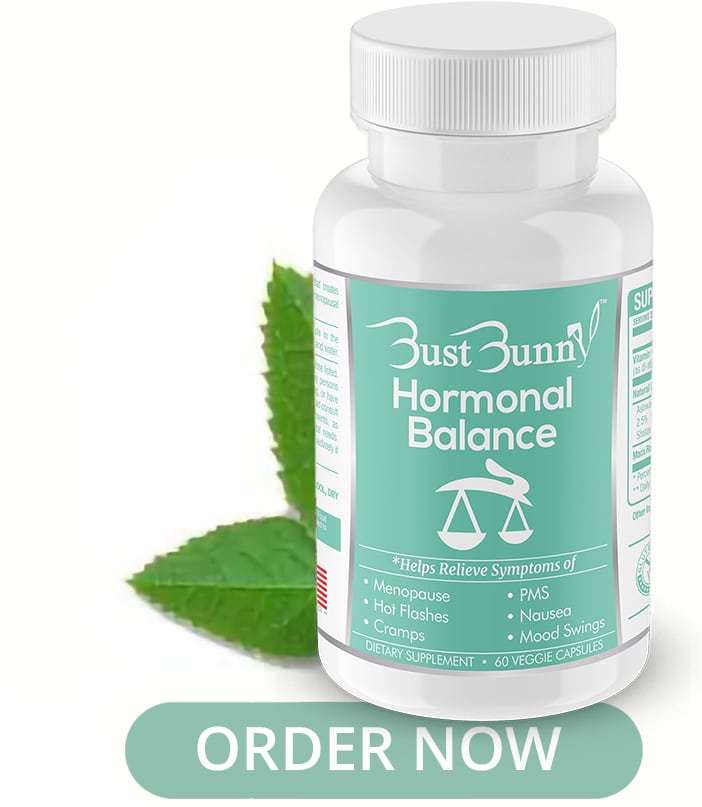
What the heck is going on?
If you’re over the age of 45, there’s a good chance you have no idea what your breasts are trying to tell you. This is especially true if your breasts increase in size instead of getting smaller as you get older. However, breast growth after menopause is pretty common and shouldn’t be a cause for worry.
Here are some facts about every woman’s issue “Why are my breasts getting bigger after menopause”:
- Due to hormonal imbalances, heredity, and changes in body weight, breast sizes will differ from person to person.
- While some women may prefer bigger breasts after menopause, some find larger breasts to be strenuous as they can put a lot of pressure on the back muscles.
- To avoid these problems, many women resort to checking on their diet, exercising, and taking natural hormonal balance supplements to control their breast size.
Here, we’ll go over some of the reasons to have breast enlargement after menopause and what you can do about it. Read on to find out more.
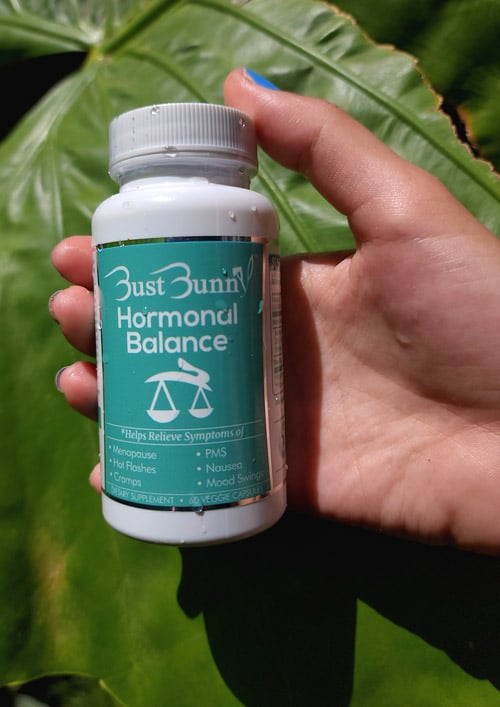
What Is Hormonal Imbalance?
Hormonal imbalance occurs when you have either an excess of or too few hormones in your body. An imbalance can be caused by various factors, including health difficulties, ovarian and breast cancer, and menopause.
Hormones, such as estrogen, progesterone, insulin, and thyroid hormones, play a significant role in your body functions and overall health. They regulate processes such as:
- Growth and development
- Metabolism
- Mood levels
- Sexual functions
- Reproductive cycle
- Stress
Typically, the hormone progesterone works along with estrogen to treat various symptoms of menopause.
Progesterone, on its own, aids women in sleeping better, influencing some cognitive functions, and thinning the uterine lining to prevent endometrial disorders like cancer. Estrogen, on the other hand, develops and maintains secondary sex characteristics such as pubic hair and breasts.
The Best Way to Balance Your Hormones
A hormonal imbalance leads to various body changes that can negatively affect your life upon entering perimenopause. For instance, you may experience irritability, mood swings, night sweats, hot flashes, and more.
These issues can have a huge impact on your life and how you interact with others. Fortunately, there is a solution to your hormonal challenges—Bust Bunny Hormonal Balance.
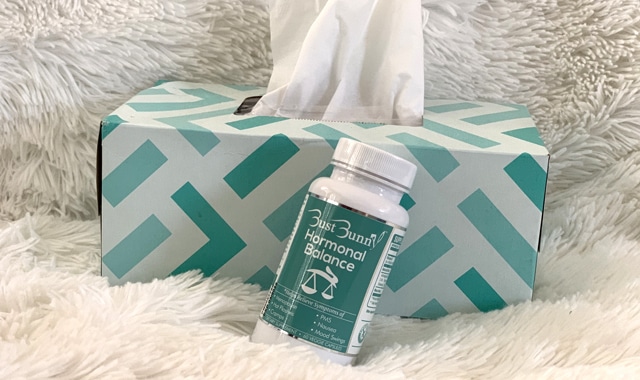
This supplement can help you alleviate the symptoms of hormonal imbalances. Below is a table containing some of the ingredients in Hormonal Balance.
| Ingredients | Impact |
| Red Clover (Trifolium pratense) | Red Clover reduces premenstrual syndrome (PSM), breast tenderness, and hot flashes |
| Maro Root/Peruvian Ginseng | Reduces menopause-related discomfort and improves hormone balance |
| Angelica Sinensis | Relieves pain and regulates the immune system |
| Shatavari | Alleviates menopause symptoms, boosts fertility and reduces PMS symptoms |
| Vitamin E | The Vitamin E in Hormonal Balance fights cell-damaging free radicals, which helps your body reduce inflammation |
| Ashwagandha Powder | Improves sleep quality, memory retention and reduces hot flashes |
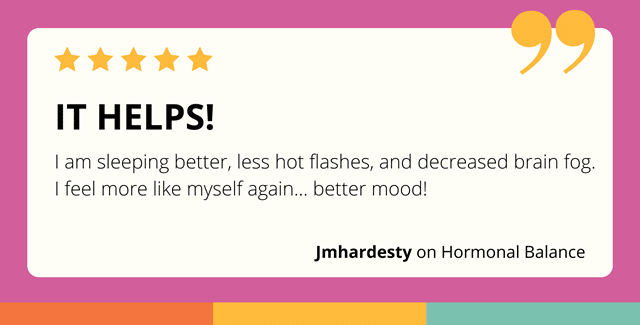
What Causes Breasts to Grow Bigger After Menopause?
That being said, here are four reasons why your breasts may be growing bigger after menopause.
Genetics
Your body naturally produces fewer hormones as you get older, leading to breast changes in the shape and texture.
For this reason, most women’s breast size tends to get smaller during and after menopause. However, because everyone’s aging process is different, this isn’t always the case.
Since genetics influence body growth and development, your DNA can influence your height, hair color, body form, weight, and other characteristics. As a result, your genes can also influence the size of your breasts after menopause.
For instance, you might be able to predict your breast size by looking at your mother’s or grandmother’s breasts after menopause. If both had an increase in breast size during that period, there’s a good chance you’ll have larger bosoms as well.
In general, family history can be linked to the age for menopause and the changes that accompany it. You’re likely to have the same experience as your mother, siblings, or close relatives before, during, and after menopause. However, there is some flexibility here. You can alter how your breasts develop by making lifestyle changes, such as checking your diet, exercising regularly, taking supplements, and relaxing.
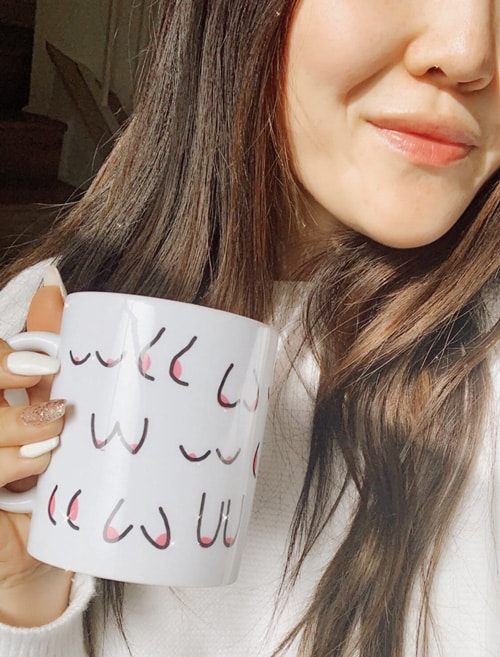
Fluctuating Hormones
Hormonal fluctuations play a significant role in the size of your breasts after menopause. As stated earlier, breast size can be linked to cyclic changes in estrogen and progesterone levels.
So, what really happens? Breasts are highly responsive to hormones. As women grow older, their milk systems become smaller and are usually replaced by fat.
The fat accumulation that occurs during premenopause contributes to increased breast size during early menopause. However, fat storage occurs at a different rate for every woman due to the variability in reproductive factors and variation in metabolic responses to reproductive hormone exposure.
As estrogen levels drop during menopause, some women get moody. To feel better, they may turn to foods high in fats, salts, sugar, and calories. Consequently, such women are likely to gain weight and experience increased water retention, making their bosoms large.
What’s more, a decrease in progesterone during menopause may result in migraines, vaginal dryness, and night sweats. For this reason, it’s crucial that you rely on a diet full of natural progesterone and hormonal balance supplements to balance your hormones.
Note: Hormone fluctuations can increase your risk of developing growths such as cysts, fibroids, and tumors, which can all alter the appearance of your breasts.
Sexual Intercourse
While the loss of estrogen after menopause usually results in a reduction in sexual desire, this is not the case for all women. In fact, some women become more sensitive to stroking and touching after menopause. In most cases, this is due to a decrease in fear of getting pregnant and fewer child-rearing responsibilities.
The lack of fear allows them to relax and become more intimate with their partners. With increased sexual drive, such women might experience an increase in the size of their breasts.
Generally, this increase is due to changes in blood circulation. Some women may also notice veins around their breasts, making their breasts appear perkier and fuller.
Here’s what happens:
When you experience an orgasm during sexual intercourse, your body undergoes a number of physical impacts. For instance, your heart will beat faster, increasing blood flow to your breast tissue. In turn, blood vessels around your breasts dilate, and the skin swells up, increasing your breast size.
Sexual Phases that Influence Your Breast Size
From the time a woman feels sexually aroused, her body goes through four different phases that influence breast size:
- Excitement: This phase is characterized by increased muscle tension, the start of vaginal lubrication, accelerated breathing, and breasts becoming fuller.
- Plateau: Blood flow to the breast and vagina increases, blood pressure increases, and muscle tension increases, expecting an orgasm.
- Orgasm: Vaginal muscles contract, areola swells, and your boobs get bigger.
- Resolution: Your heart rate and blood pressure fall as you calm down. However, if stimulation continues, you may go back to the first three states.
Regular sex can cause your breasts to increase even after the resolution phase. This change in breast size may not be very significant since blood circulation decreases after you’ve had an orgasm. As a result, ladies who want bigger breasts can trust Bust Bunny breast enhancement pills in addition to sexual activity for longer-lasting growth.
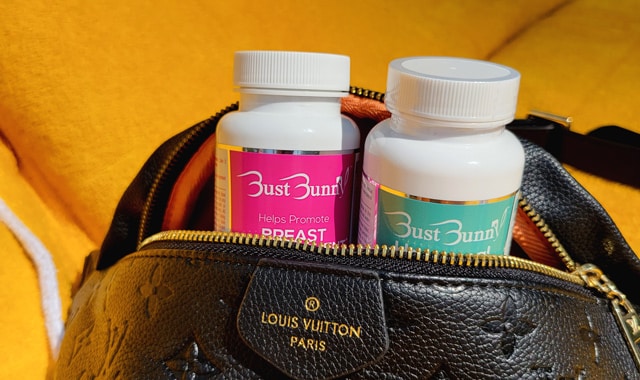
Weight Gain
As a woman becomes older, the body stops performing as efficiently as before because her muscle mass begins to deteriorate while fat accumulates. As muscle mass declines, the body begins to burn fewer calories, leading to weight gain.
Here are some reasons why you gain weight:
- Hormonal changes. This can also lead to weight gain after menopause. For instance, hormones such as insulin and estrogen can influence your appetite and the rate at which your body burns calories for energy. With this in mind, they can increase your body fat or make it difficult for you to lose weight—leading to weight gain.
- Stress. Aside from physiological impacts, the stress associated with aging can impact appetite and weight. Stress can cause a temporary increase in plasma glucose levels or boost cortisol release, both of which stimulate the appetite.
- Poor lifestyle. Another few reasons why women might put on weight or gain a cup size after menopause include a lack of physical activity, low-quality sleep, and poor nutritional habits.
So what can you do about it? How can you prevent or slow down this gradual weight gain?
Although exercise is one of the most effective ways to lose weight, there are other options for dealing with the fat deposits that develop after menopause. These include:
- Drinking a lot of water
- Controlling stress
- Cutting back on food high in sugar, salt, and fats
- Avoiding smoking and drinking alcohol
- Getting enough sleep
- Taking well-reviewed hormonal balance supplements

Frequently Asked Questions About Hormonal Balance
Can Hormonal Balance relieve menopause symptoms?
Yes. Besides turning to natural foods that contain the nutrients necessary for balancing hormones, Hormonal Balance is a great option for relieving symptoms of menopause.
The herbal supplement contains plant-based ingredients that are proven to relieve:
- Hot flashes
- Irritability
- Bloating
- Night sweats
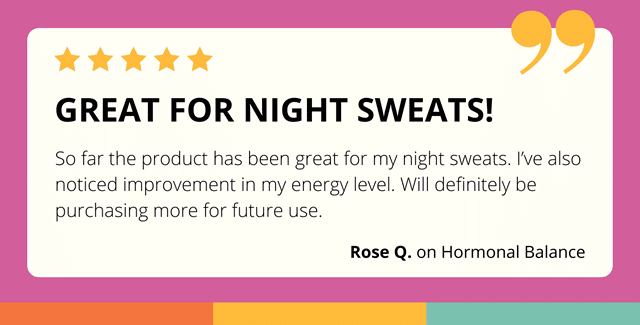
Is Hormonal Balance effective for all women?
Hormonal Balance can help all women who are facing hormone-related problems. After taking the supplement, you’ll see an overall improvement in all aspects of your life, including skin, mood, brain function, energy, stress, and general well-being.
How can I reduce my breast size after menopause?
Since bigger breasts may cause neck and shoulder pain, some women—especially during or after menopause—may want to reduce their breast size.
Because breasts contain fat, the strategies you take should reduce your overall body fat. Some of these strategies include diet, hormone binding, and exercise.
Can I take Hormonal Balance along with other supplements?
Yes. You can take Hormonal Balance to resolve problems caused by menopause and PMS (Premenstrual syndrome) with other supplements.
Share on Instagram:
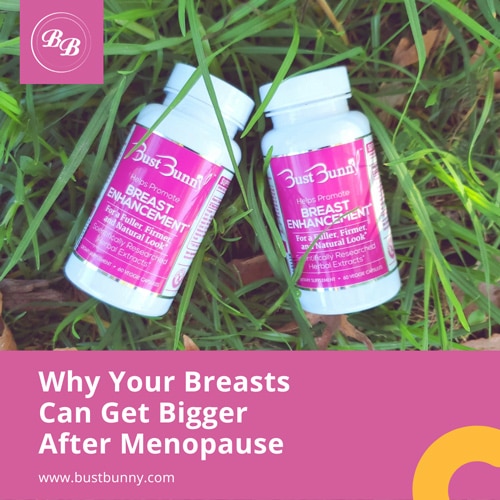
Share on Facebook:
